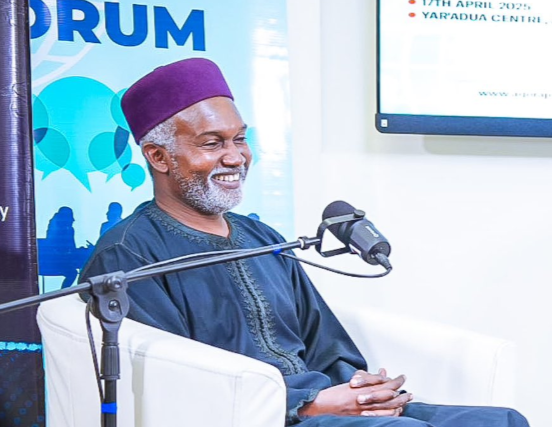No Nigerian artists as Tinubu's minister lists his top 10 rsongs

```html Foreign Minister Tuggar Sparks Debate with Hip-Hop Reference and Top 10 List Nigeria's Minister of Foreign Affairs, Yusuf Tuggar, has ignited a social media discussion following his use of a Flavor Flav quote during a discussion about international relations. The minister's subsequent release of his top 10 rap songs of all time, which notably excluded Nigerian artists, further fueled the online conversation.
Diplomatic Stance and a Hip-Hop Interlude While appearing on Channels TV on Friday, July 11, 2025, Tuggar addressed Nigeria's stance on accepting Venezuelan deportees from the United States. He asserted that Nigeria would not accept these individuals, particularly those with criminal records. To emphasize his point, Tuggar quoted the Public Enemy rapper Flavor Flav, saying, "Flavor Flav has problems of his own / I can’t do nothing for you, man." He then added his own remark, stating, "We have enough problems of our own. We cannot accept Venezuelan deportees. You will be the same people who would criticize us if we do." This statement highlights the Nigerian government's concern about the potential strain on resources and security that accepting deportees could create.
Social Media Reacts to Minister's Musical Preferences Following the broadcast, Nigerian author Lola Shoneyin jokingly requested that the minister share his top 10 rap songs of the year. Responding to this request, Tuggar released his all-time favorite rap songs, a list dominated by classic hip-hop tracks from the late 1980s and early 1990s. However, the list conspicuously omitted any Nigerian rap artists.
Tuggar's All-Time Top 10 Rap Songs:
‘My Mind is Playing Tricks on Me’ – Ghetto Boys (1991) ‘Paid in Full’ – Eric B & Rakim (1987) ‘Fight the Power’ – Public Enemy (1990) ‘It’s a Shame’ – Monie Luv (1990) ‘The Story of OJ’ – Jay Z (2017) ‘Get Your Freak On’ – Missy Elliott (2001) ‘The Crown’ – Gary Byrd & the GB Experience (1984) ‘It Takes Two’ – Rob Base (1988) ‘Nuthin’ But a G Thang’ – Dr. Dre ft. Snoop Dogg (1992) ‘Do for Love’ – Tupac (1998)
Exclusion of Nigerian Rappers Sparks Debate While many applauded the minister's taste in classic hip-hop, others criticized the absence of Nigerian rap artists. Prominent figures like M.I. Abaga, Mode 9, Olamide, Blaqbonez, and Odumodublvck, who have significantly contributed to the Nigerian music scene, were not included. This omission sparked a debate about the recognition and appreciation of Nigerian talent on a national and international level.
Expert Perspective: The Significance of Cultural Representation Dr. Adebayo Williams, a professor of cultural studies at the University of Lagos, commented on the situation, stating, "While it's perfectly acceptable for individuals to have personal preferences, the minister's position carries a certain weight. The exclusion of Nigerian artists, whether intentional or not, sends a subtle message about the perceived value of our own cultural output. It's crucial for public figures to be mindful of the impact their choices can have on national pride and the promotion of local talent."
Historical Context: The Evolution of Nigerian Hip-Hop Nigerian hip-hop has evolved significantly since its emergence in the late 1980s and early 1990s. Artists like Remedies, Trybesmen, and Eedris Abdulkareem paved the way for the current generation of rappers. Today, Nigerian hip-hop is a vibrant and diverse genre, incorporating indigenous languages and cultural influences. The genre's growth reflects Nigeria's dynamic cultural landscape and its increasing influence on the global music scene.
The Bigger Picture: Diplomacy, Culture, and Public Perception The incident highlights the intersection of diplomacy, culture, and public perception in the digital age. While the minister's hip-hop reference and song list may seem trivial, they have generated significant discussion about cultural representation, national identity, and the role of public figures in promoting Nigerian talent. The debate underscores the importance of cultural sensitivity and the need to recognize and celebrate the contributions of Nigerian artists across all genres. ```
Originally sourced from: pulse Ng
